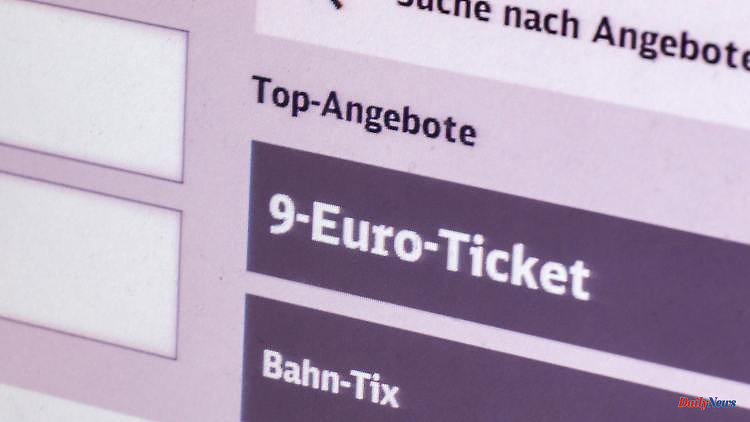Before the start on June 1, almost three million nine-euro tickets have already been sold. Bahn boss Lutz already sees the campaign as a success. But he also warns that the railway network will not be able to withstand growing demand in the long term. He calls for a "radical change of course".
Deutsche Bahn alone has sold 2.7 million of the nine-euro tickets for local transport. That said CEO Richard Lutz in Berlin. "In any case, this shows that the nine-euro ticket is not a slow seller, but a real hit." With the ticket, passengers can use local public transport throughout Germany for one month in June, July and August. The campaign aims to relieve commuters in the face of high energy prices and win new customers for buses and trains. Promotional tickets are available from all local transport companies.
But the demand meets rails in need of renovation: Lutz called for "a paradigm shift in infrastructure". The overloaded infrastructure must become a "high-performance network". "Never before have there been as many trains on the German network as there are these days," said Lutz in Berlin. He promised that additional staff and trains would be made available to cope with the high number of passengers during the period of validity of the nine-euro ticket. However, the route network was not able to cope with the growing demand for passenger and freight traffic in the medium term. A fundamental renovation is necessary, it needs "a fundamental, a radical reversal," said Lutz. "Keeping on like this is definitely not an alternative."
In particular, the railway boss called for a general renovation of the particularly intensively traveled routes. He suggested that the planned construction measures for the coming years should be concentrated here over a shorter period of time. Longer closures are necessary for such an approach, the DB explained. At the same time, however, better "preliminary planning with greater reliability and longer lead times for everyone involved" is also possible. After the construction measures, there should be no further need for construction on the respective routes for several years.
The concrete steps for building a "high-performance network" would be coordinated between the railways, the federal government and representatives of the industry, said Lutz. Construction is scheduled to start in 2024, with two to three of the most important railway lines being modernized every year. The fundamental renovation of the infrastructure is to be completed in the second half of the 1920s.
From the trade union point of view, the announced general renovation of the railway will demand a lot of patience from the passengers. "The railway companies and the customers will go through a vale of tears," said the chairman of the railway and transport union, Klaus-Dieter Hommel. "It will take years for things to get better. But customers will appreciate that because the situation on the road isn't getting any better either and they are environmentally conscious," said Hommel, who is also Vice Chairman of the Deutsche Bahn Supervisory Board.












